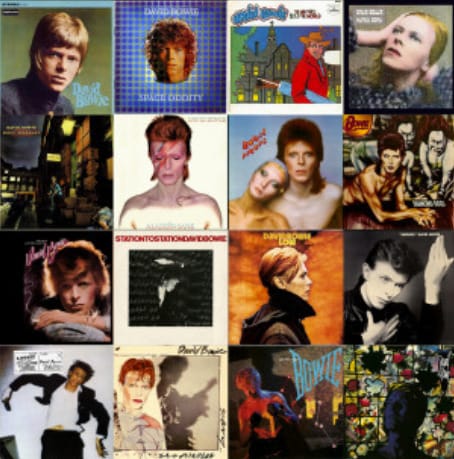David Bowie’s musical journey is a kaleidoscope of innovation, style, and profound expression. Spanning across decades, his albums are not mere collections of songs but vibrant canvases that painted new landscapes in the world of music.
Each record is a unique exploration, a bold statement from an artist who never ceased to surprise and inspire. From the glam rock allure of Ziggy Stardust to the soulful echoes of ‘Young Americans’, Bowie’s discography is a thrilling ride through diverse genres and profound storytelling.
His work doesn’t just capture the spirit of their times; it transcends them, offering a glimpse into the mind of one of the most versatile and influential artists in the history of rock music.
David Bowie’s Best Albums From Worst To Best
26. ‘Never Let Me Down’ (1987)
This album represents a period where Bowie’s creativity seemed to falter, marked by a series of missteps and overproduced tracks. The attempt to blend contemporary trends with his unique style resulted in a disjointed and underwhelming offering. The concept piece about a glass spider, among other elements, felt out of sync with Bowie’s established artistry.
Must-listen track: Despite the album’s overall reception, “Time Will Crawl” stands out for its more refined Bowie-esque qualities, offering a glimpse of his enduring talent even in less favorable projects.
25. ‘Black Tie White Noise’ (1993)
Seen by some as a comeback, this album falls short when stacked against Bowie’s more cohesive works. The fusion of electronic and jazzy elements with Bowie’s vocals creates an eclectic but ultimately unsatisfying sound. Its attempt to engage with social issues like racial tensions was commendable but lacked the depth and finesse found in his earlier work.
Must-listen track: The title track, “Black Tie White Noise,” offers an interesting listen, showcasing Bowie’s attempt to navigate the evolving music landscape of the early ’90s.
24. ‘Tonight’ (1984)
Following the success of “Let’s Dance,” ‘Tonight’ feels like a creative regression for Bowie. The album is a mix of lackluster covers and collaborations that fail to capture the magic of his previous works. The production feels rushed, and the album lacks the innovative spark that is typically associated with Bowie.
Must-listen track: “Blue Jean” emerges as the album’s saving grace, a catchy tune that echoes the charm of Bowie’s more successful hits.
23. ‘David Bowie’ (1967)
Bowie’s debut album is a far cry from the groundbreaking artist he would become. The whimsical baroque pop feels amateurish compared to his later works. However, it’s an interesting listen for those wanting to understand the roots of his eclectic career.
Must-listen track: “Love You till Tuesday” offers a playful and charming experience, providing insight into Bowie’s early musical style.
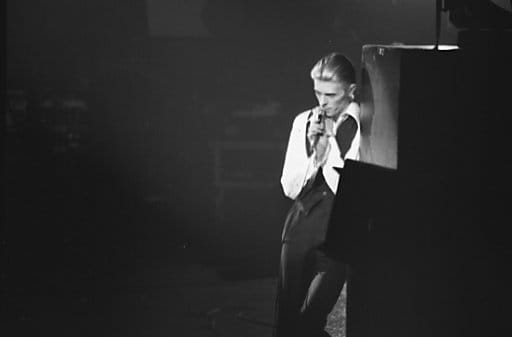
22. ‘Hours…’ (1999)
This album reflects a period of experimentation that didn’t quite hit the mark. The overall tone is subdued and lacks the vibrancy of Bowie’s best work. While it made history as the first major album released on the Internet, the music itself doesn’t live up to this pioneering step.
Must-listen track: “Thursday’s Child” is a highlight, featuring a more melodic and introspective Bowie.
21. ‘Pin Ups’ (1973)
Amidst the height of Ziggy Stardust fame, Bowie released ‘Pin Ups’, a covers album that feels more like a side project than a main act. While the song choices are excellent, the execution often feels overdone, lacking the subtlety and nuance of the original tracks.
Must-listen track: “Sorrow” stands out for its less exaggerated approach, offering a more enjoyable listening experience.
You Might Like: David Bowie’s Greatest Hits
20. ‘The Buddha of Suburbia’ (1993)
More of a soundtrack than a typical Bowie album, ‘The Buddha of Suburbia’ showcases his ability to create atmospheric and experimental music. The album, while not commercially successful, highlights Bowie’s versatility and willingness to explore different musical landscapes.
Must-listen track: The track “Strangers When We Meet” is particularly engaging, showcasing Bowie’s talent for creating emotive and captivating music.
19. ‘Outside’ (1995)
Reuniting with Brian Eno, ‘Outside’ presents a complex and dark narrative that, while intriguing, can be difficult to penetrate. The album’s industrial sound and fragmented storytelling make it a challenging but rewarding listen for fans of Bowie’s more avant-garde work.
Must-listen track: “The Hearts Filthy Lesson” offers a glimpse into the album’s thematic and sonic depth, encapsulating its dark and industrial vibe.
18. ‘Earthling’ (1997)
‘Earthling’ sees Bowie dabbling in the drum ‘n’ bass genre, a move that was seen by some as him chasing trends. Despite this, the album has a raw energy and showcases Bowie’s willingness to experiment with contemporary sounds.
Must-listen track: “I’m Afraid of Americans” is a standout track, offering a critical look at American culture with a powerful and catchy beat.
17. ‘Heathen’ (2002)
After the less impactful ‘Hours…’, ‘Heathen’ marked a return to form for Bowie. The album mixes covers and originals seamlessly, resulting in a work that is both reflective and forward-looking. It’s a mature album that embraces Bowie’s legacy while still exploring new musical territory.
Must-listen track: “Afraid” is a highlight, combining a driving beat with introspective lyrics, showcasing Bowie’s enduring talent in the new millennium.
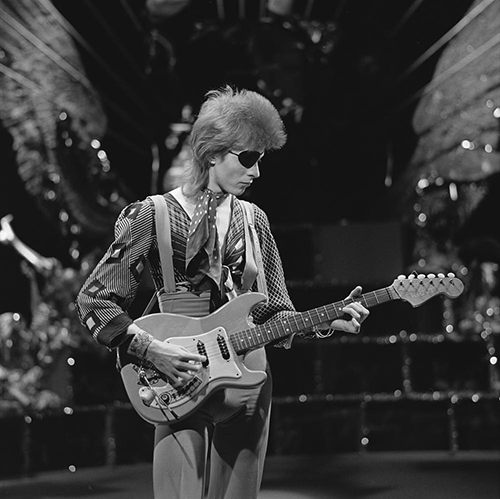
16. ‘Reality’ (2003)
‘Reality’ dives into themes of anxiety and post-9/11 world views, making it a deeply introspective and relevant album. Bowie’s songwriting is sharp, and the rock-driven sound provides a solid foundation for his exploration of these complex themes.
Must-listen track: “New Killer Star” is a poignant reflection on contemporary issues, wrapped in an engaging rock melody.
15. ‘David Bowie’/’Space Oddity’ (1969)
This album, with its various titles, is where Bowie began to find his voice. The title track “Space Oddity” is a stark contrast to the rest of the album’s folk-influenced sound. It’s an essential listen for understanding the genesis of Bowie’s unique musical journey.
Must-listen track: Undoubtedly, “Space Oddity” is the must-listen track here, offering a glimpse into the early signs of Bowie’s genius.
You Might Like: Why Rolan Bolan Is Indebted To David Bowie
14. ‘Diamond Dogs’ (1974)
A concept album with a dystopian vision, ‘Diamond Dogs’ is a messy yet fascinating mix of glam rock and proto-punk. The album’s narrative may be disjointed, but its musical ambition and energy are undeniable.
Must-listen track: The title track, “Diamond Dogs,” combines a raw rock sound with Bowie’s unique storytelling, making it a standout on the album.
13. ‘The Next Day’ (2013)
Bowie’s unexpected return after a decade-long hiatus, ‘The Next Day’ is a solid rock album that revisits many themes from his past while still sounding fresh. It’s a testament to Bowie’s ability to remain relevant and innovative throughout his career.
Must-listen track: The title track, “The Next Day,” is a burst of energy and a clear statement of Bowie’s enduring prowess in the rock genre.
12. ‘Blackstar’ (2016)
Released just days before his death, ‘Blackstar’ is a haunting and experimental farewell from Bowie. The album blends jazz, rock, and electronic elements to create a somber yet beautiful swan song.
Must-listen track: The title track, “Blackstar,” is a mesmerizing and poignant piece that encapsulates the album’s innovative and introspective nature.
11. ‘Young Americans’ (1975)
A departure from glam rock, ‘Young Americans’ dives into soul and funk, showcasing Bowie’s chameleon-like ability to adopt and reinvent different musical styles. The album is a vibrant and bold exploration of new sonic territories.
Must-listen track: “Fame,” co-written with John Lennon, stands out with its funky groove and critical look at celebrity culture.
10. ‘The Man Who Sold the World’ (1970)
This album marks a significant shift in Bowie’s sound, moving towards a heavier rock style. It’s a powerful and introspective work that explores themes of insanity and alienation.
Must-listen track: The title track, “The Man Who Sold the World,” remains a haunting and enigmatic piece, later famously covered by Nirvana on their ‘MTV Unplugged’ session.
You Might Like: Bowie’s Berlin Lover – Romy Haag
9. ‘Let’s Dance’ (1983)
Often misunderstood as the beginning of Bowie’s commercial decline, ‘Let’s Dance’ is actually a vibrant and creatively rich album. It successfully blends pop sensibilities with deeper artistic ambitions, showcasing Bowie’s ability to reach a broader audience without sacrificing his artistic integrity.
Must-listen track: “Modern Love” encapsulates the album’s energetic and catchy style, making it a classic Bowie track that resonates with audiences even today.
8. ‘Lodger’ (1979)
The final installment of the “Berlin Trilogy,” ‘Lodger’ is an eclectic mix of world music influences, experimental soundscapes, and rock elements. While it may not reach the heights of its predecessors, it’s an adventurous and underrated album in Bowie’s catalog.
Must-listen track: “Boys Keep Swinging” stands out for its catchy rhythm and playful approach, encapsulating the album’s experimental spirit.
7. ‘Scary Monsters [and Super Creeps]’ (1980)
This album is a spectacular finale to Bowie’s decade of musical triumphs. It’s a sonic journey from the chaotic beginnings of ‘It’s No Game’ to the iconic ‘Fashion’. In this album, Bowie not only revisits but also reinvents his past, particularly with ‘Ashes to Ashes’, a track that serves as a dark yet captivating ode to the 70s.
Must-listen track: “Ashes to Ashes” not only revisits but reimagines the character of Major Tom, creating a hauntingly beautiful narrative that intertwines with intricate melodies.
6. ‘Aladdin Sane’ (1973)
‘Aladdin Sane’ sees Bowie taking his Ziggy Stardust persona on an American adventure, resulting in a fusion of hard-rocking glam and jazz influences. Mick Ronson’s fiery guitar work and Bowie’s daring vocal performances make this album a standout, showcasing Bowie’s fearless artistic approach.
Must-listen track: “The Jean Genie” captures the essence of this album’s bold and gritty glam rock style, combining catchy riffs with Bowie’s unique vocal charm.
5. ‘Heroes’ (1977)
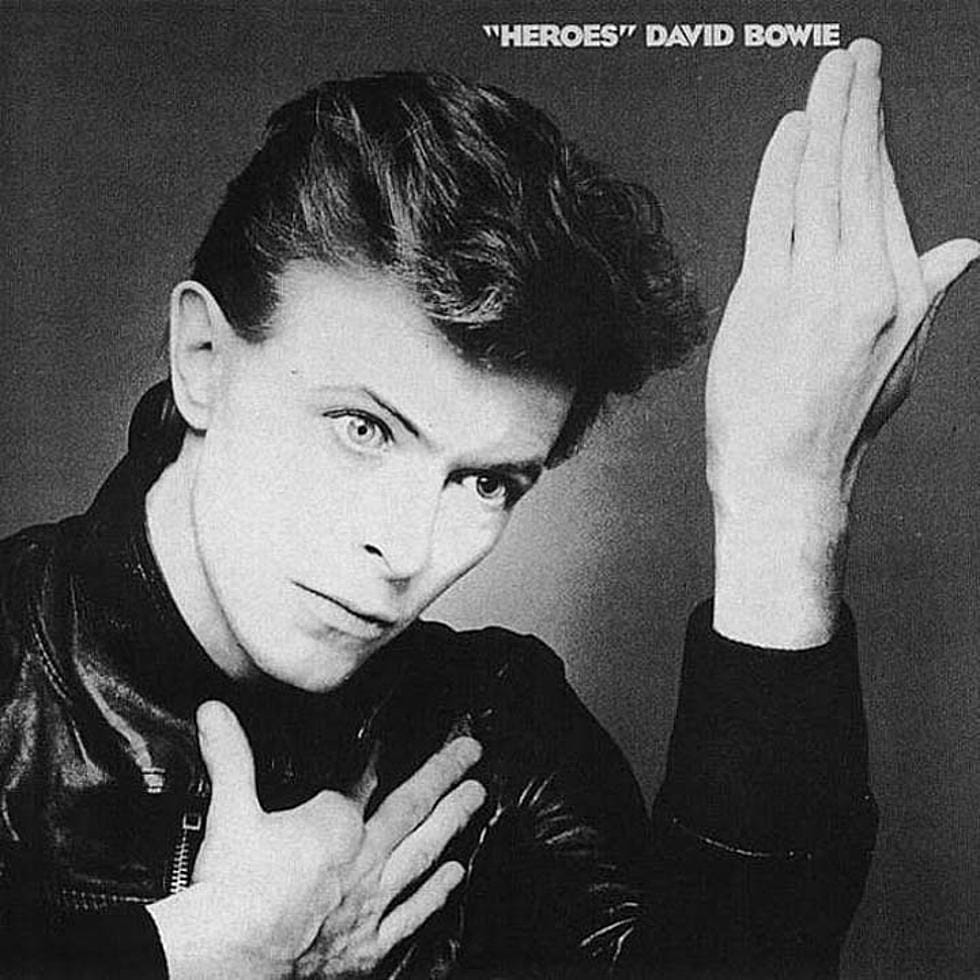
The quintessential “Berlin” album, ‘Heroes’ is a masterpiece of contrast and duality, recorded in a city divided. It’s a blend of anthemic rock and introspective ambient tracks, reflecting the complex emotions of love and despair against a backdrop of political tension.
Must-listen track: The title track “Heroes” epitomizes the album’s grandeur and emotional depth, offering a glimpse of hope and resilience in a troubled world.
You Might Like: Dig Into Prince’s Best Albums
4. ‘Station to Station’ (1976)
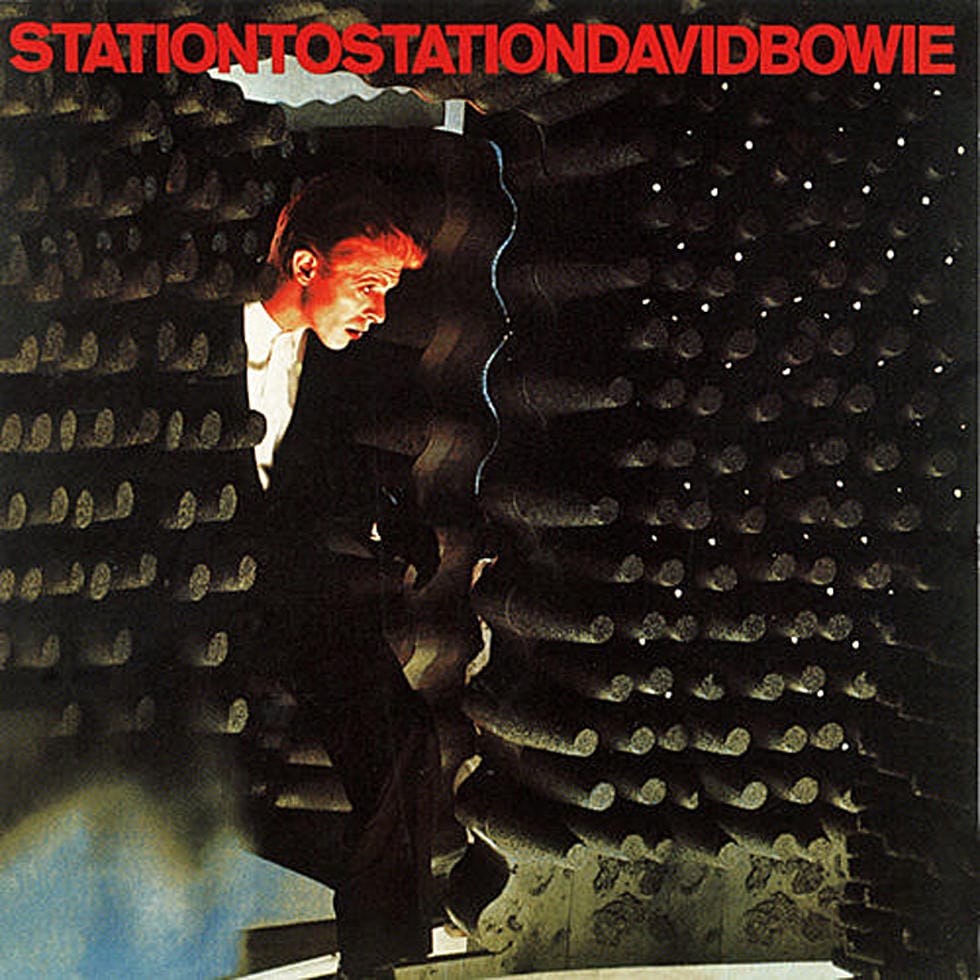
‘Station to Station’ is where Bowie’s fascination with R&B meets his exploration of German electronic music. The emergence of the Thin White Duke, a persona mirroring Bowie’s own turmoils, marks this album as a critical point in his career, blending soulful rhythms with a colder electronic sound.
Must-listen track: “Word on a Wing” reveals Bowie’s introspective and vulnerable side, offering a poignant reflection on faith and existential longing amidst his turbulent life.
3. ‘The Rise and Fall of Ziggy Stardust and the Spiders from Mars’ (1972)
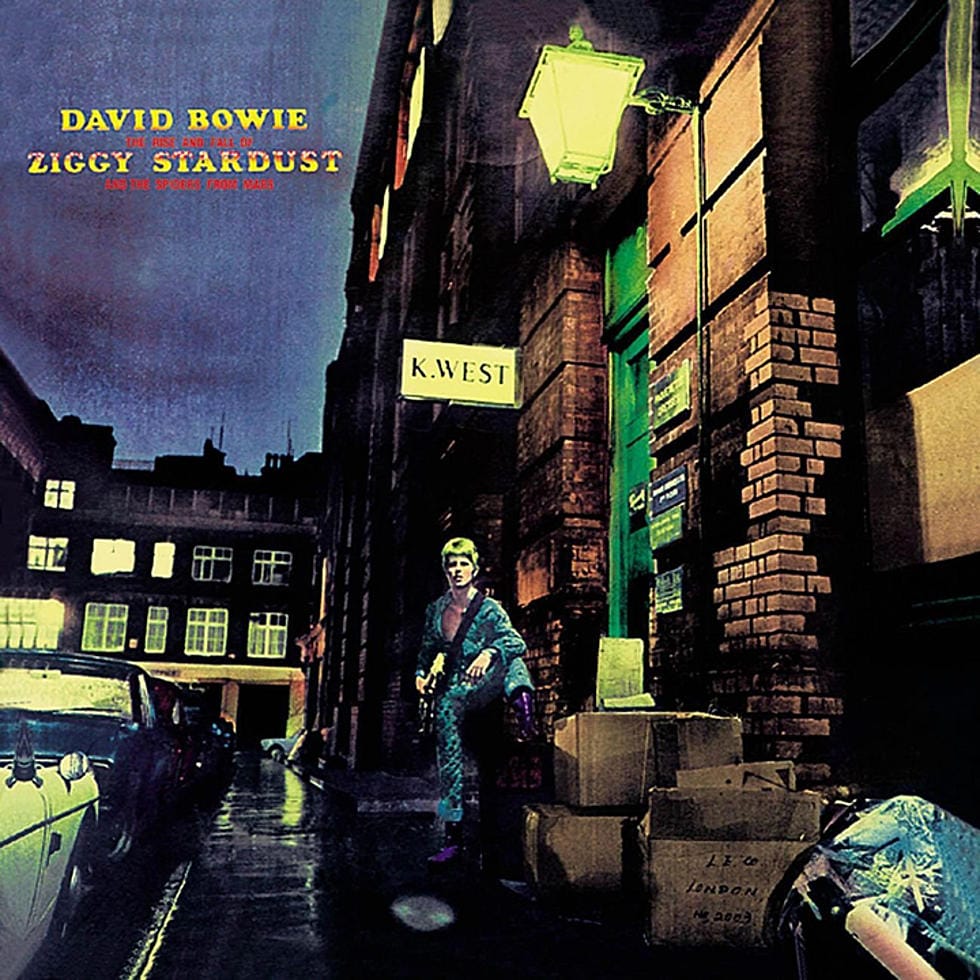
This album is the cornerstone of Bowie’s legacy, where the Ziggy Stardust persona catapults him into superstardom. It’s a flamboyant mix of rock opera and catchy tunes that transcend its narrative, establishing Bowie as a musical icon.
Must-listen track: “Starman” is a vibrant and whimsical anthem that captures the heart of this album, blending imaginative storytelling with irresistible melodies.
2. ‘Hunky Dory’ (1971)
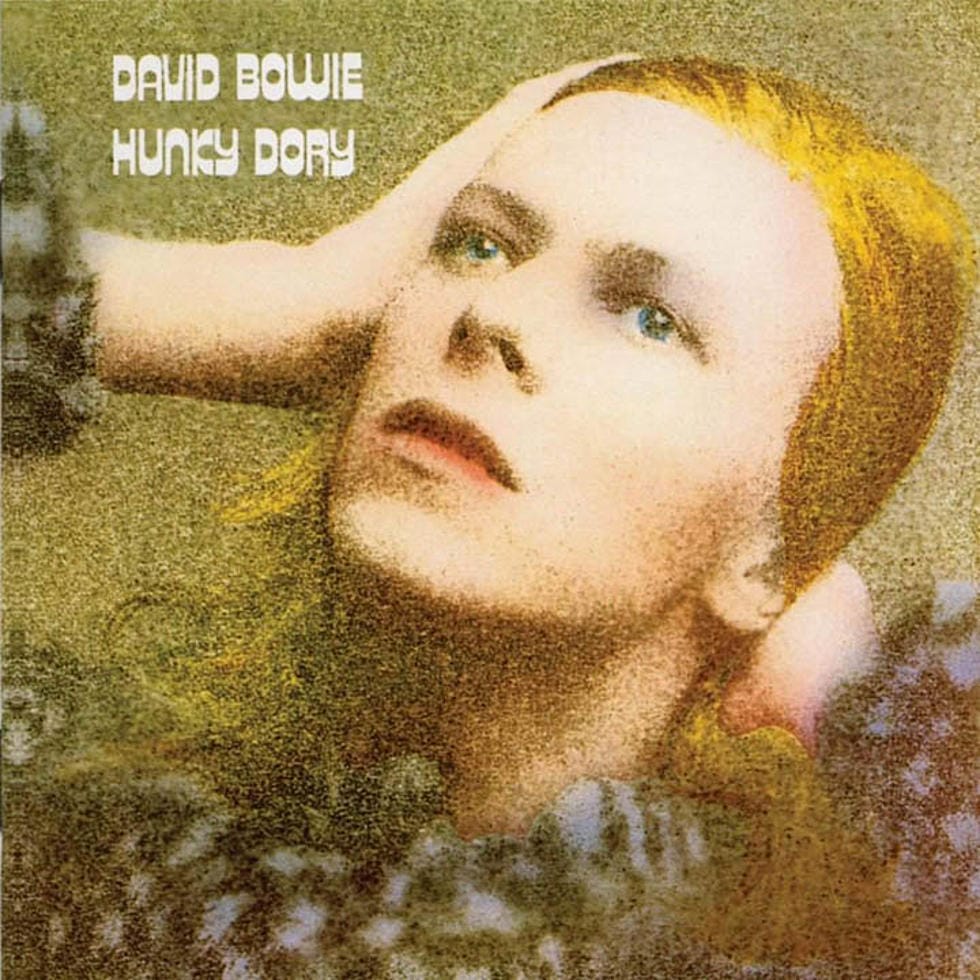
‘Hunky Dory’ is Bowie’s audacious leap into varied musical styles, combining pop, folk, and avant-garde elements. This album reflects his artistic ambition and versatility, paying homage to his influences while carving out his own unique path.
Must-listen track: “Life on Mars?” stands out as a mesmerizing and complex composition, showcasing Bowie’s extraordinary ability to blend narrative depth with musical innovation.
1. ‘Low’ (1977)
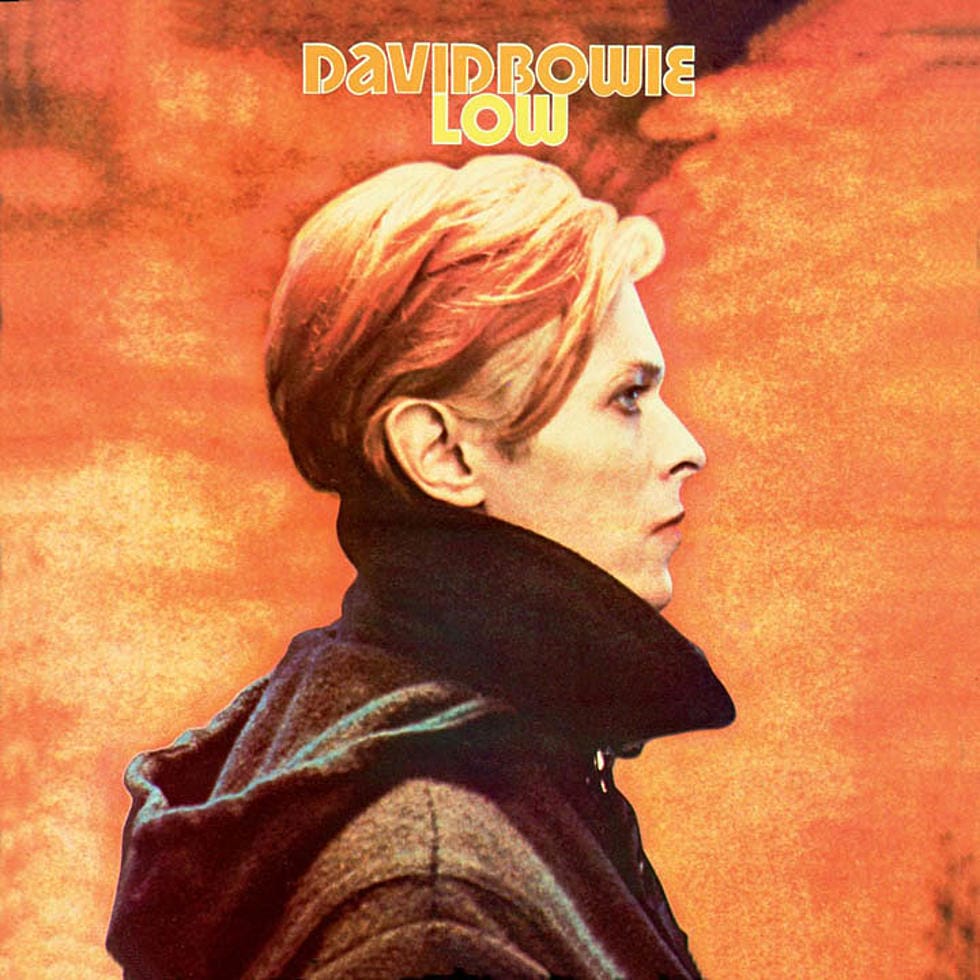
‘Low’ marks the beginning of the “Berlin Trilogy,” a period of intense experimentation for Bowie. This album’s minimalist lyrics and innovative soundscapes reflect his personal struggles and artistic rebirth, creating a hauntingly immersive listening experience.
Must-listen track: “Sound and Vision” encapsulates the essence of ‘Low’, combining sparse lyrics with an expansive musical landscape, symbolizing Bowie’s artistic reawakening.
Final Thoughts On David Bowie’s Best Albums
Exploring David Bowie’s best albums is like walking through a gallery of musical masterpieces, each one showcasing a different facet of his artistic genius. His albums are landmarks in the landscape of popular music, each one a unique fusion of sound, style, and vision.
He didn’t just create music; he created worlds, inviting us to journey with him through realms of sound and imagination. His legacy is not just in the songs he left behind but in the enduring influence he has on artists and music lovers alike.
Bowie’s albums are more than just records; they are enduring symbols of artistic courage and creativity, continuing to resonate and inspire long after their initial release.
- The 25 Richest Rock Stars in the World | A Rock And Roll Rich List - February 22, 2024
- Rock And Roll Movies | 20 Films That Will Rock Your World - February 19, 2024
- The Biggest One Hit Wonders In Rock History - February 16, 2024


